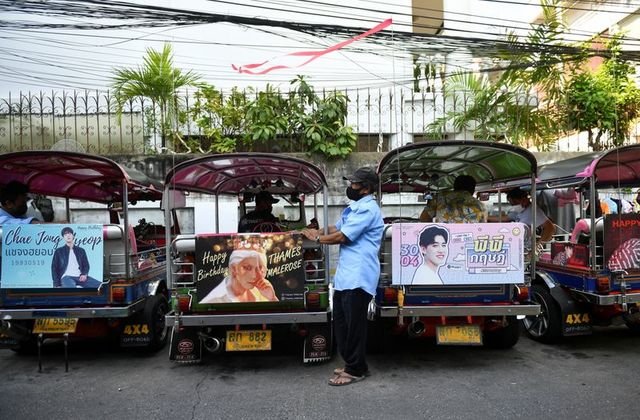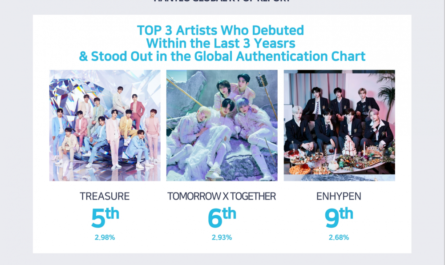Amid lack of tourists, young fans provide struggling drivers with new sources of income by putting up banners of idols.
SAMRAN Thammasa, a 39-year-old tuk-tuk driver in Bangkok, had never heard of K-pop star Jessica Jung before the coronavirus pandemic. Still, now the singer’s Thai fans are helping him survive the loss of tourist customers.
His bright green three-wheeled motorcycle rickshaw has been mostly vacant for more than a year. In the past few months, though, he has earned about 600 baht (S$25.26) a month to feature K-pop ads on his vehicle.
“The extra income may not be a lot for most people, but it is for us,” he said, glancing at a shimmering vinyl banner of Jung.
Drivers of Bangkok’s distinctive tuk-tuks have been among the hardest hit by the pandemic’s devastation of Thailand’s all-important tourism industry. Many have left the haunting corners of empty city streets complaining of mounting debt.
Mr. Samran used to earn around 1,500 baht a day ferrying foreign tourists around Bangkok. Nearly all of that disappeared as visitor numbers fell by 85 percent in 2020, and Thailand is not expected to lift its strict border controls for months yet.
Unexpected help came this year from Thailand’s politically disaffected and K-pop-obsessed youth when they stopped buying ads celebrating their idols’ birthdays and album launches from public transport instead of giving their ad money to grassroots businesses, including tuk-tuks and street food vendors.
Over the last few months, young fans have mobilized to put up banners of their favorite K-pop idols on the iconic vehicles for a month at a time, providing a new source of income for struggling drivers.
Mr. Samran and many others now drive their empty tuk-tuks around Bangkok with a banner of a different K-pop sensation each month, stopping for young Thai fans to take pictures and use their service, often with tips.
So far, the initiative has benefited several hundred tuk-tuk drivers. There are more than 9,000 tuk-tuks registered in Bangkok, government data showed.
Last year, the trend had roots in anti-government protests that drew tens of thousands of students calling for Prime Minister Prayut Chan-o-cha – who first came to power in a military coup – to step down.
Many K-pop fans were protesters themselves. Last year, they vowed to pull huge billboard advertising fees from Bangkok’s sky-train and subway services – a longstanding lighthearted tradition for different fan groups – after mass transport shut down to try to prevent students from reaching protest sites.
The fans started printing vinyl or cardboard signs and recruiting tuk-tuk drivers at garages and on the street – funneling their ad funds to the people who need it most.
“It’s a political expression that we don’t support capitalists. This marked a change from us competing to book sky-train and subway billboards, but now it’s tuk-tuks,” said Pichaya Prachathomrong, 27.
Ms. Pichaya herself raised 18,000 baht among Thai fans of the boy band Super Junior to promote member Yesung’s new album before recruiting 13 tuk-tuks via a new booking service on the popular messaging application Line.
The Tuk Up service, created by 21-year-old university sophomore Thitipong Lohawech, was initially to help dozens of drivers who rented vehicles from his family’s garage. But now, it supports about 300 drivers from all over Bangkok.
“The fans are distributing income to the grassroots, which helps drive social change and support the economy,” said Mr. Thitipong.
Drivers said they had seen little of the government’s approved relief of around 967 billion baht, as handouts mainly were only accessible via a mobile wallet application.
“By the time the money reaches us, we are nearly dead,” said Pairot Suktham, a 54-year-old driver who, like many others, does not have a smartphone. “The fans are our life support system and give us hope to keep fighting.” REUTERS











